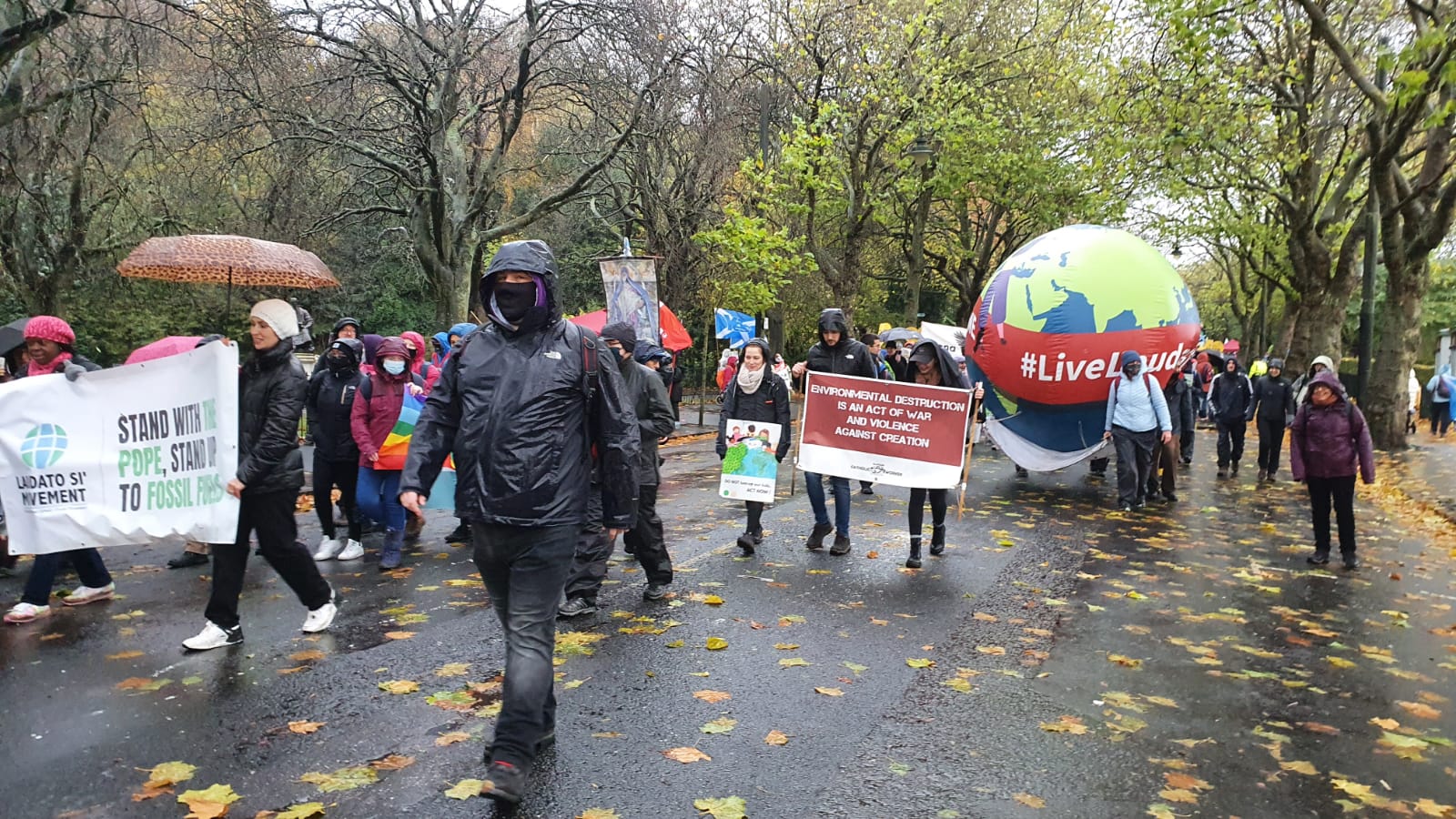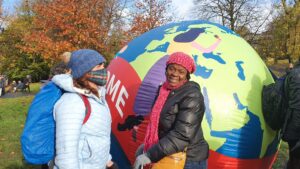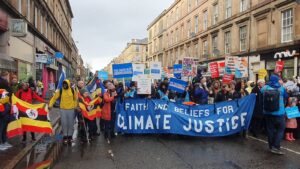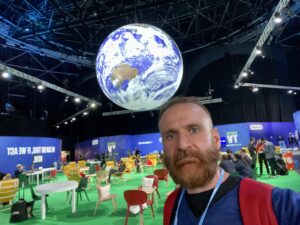
However, on the other hand, after the bombastic speeches of the World Leaders on the first two days, I confirm something that I have realized for several COPs now: that the political, economic and financial process to achieve these necessary changes will take a long time. The struggle for climate action is a long struggle. The Ambitions (NDCs) presented by countries at this COP were an example of complexity and slowness. They were insufficient. The flaccid outcome document is another example. Six years have passed since the Paris Agreement, and we are still the same in terms of the implementation of global and binding climate actions. And there is very little time left until 2030.
I think it may be impossible in practice to achieve the drastic transformation of the energy matrix that is driving the world’s economies due to a lack of agreements, investment, financing and even technological problems. My fear now is that alternative energies, given that they are still expensive, will be only for a few and that aid to the other poorer nations, which even today urgently need immediate help to be able to develop their societies with dignity, will be postponed. Some of this has happened with the unfair distribution of pandemic vaccination in these almost two years of COVID.
In addition, I would like to emphasize the following. Scientific knowledge provides a frame of reference for decision-making. The limits suggested by climate science for action should be taken for what they technically are: climate projections, and therefore we should not take them as blanket statements that if we do not manage to reduce CO2 emissions to 50% of what we emitted in 2010 by 2030, and we do not succeed in reaching net zero emissions by 2050 and thus achieve a warming below 2°C before the end of the century, then the cataclysm, the apocalypse, is coming. This will not happen, because nature is benevolent and the climate system has mechanisms for adaptation, buffering and resilience.
However, this does not mean that we will not have costs and suffering, in fact, there are already populations in the Global South suffering the consequences of climate change. It does mean that we must not despair, and always maintain a glimmer of hope. What is certain, as with the pandemic, is that the problems associated with climate change as they emerge and become more frequent will force us to rethink things in order to adapt and survive.


Laudato Si’ Movement at the Climate March, Glasgow 2021
By this I mean that climate science does not predict an apocalyptic future, nor does it indicate that we should leave things as they are. The future, real and concrete, in terms of its dose of uncertainty and complexity, can be said to be “in God’s hands”, in that the Creator has given us a wonderful Earth, with its internal laws in its dynamics, worthy of living on; and has given us intelligence to find just solutions and a capacity for empathy, for passion, to help us react to the suffering of others. This gives me hope.
In fact, even if we achieve the necessary CO2 reductions in the coming decades, the effects on climate change that we are causing now and will cause in the coming years will last for a long time in the atmosphere (at least 100 years more) and, therefore, the benefits will not be immediate.
By this I mean that climate science tells us that we do need to change the direction of our cultures of over-consumption, of predatory economies and the way we think about progress, so that integral human development is more in harmony with, and respectful of, the resilience of the Earth. These behavioral changes are primarily human and social, and are likely to take a long time. We must not stop working towards them. This is the new Laudato Si’ culture that we want to live and share as believers.
Sisters and Brothers, integral ecology is a paradigm, a worldview of how human beings should relate to the Earth, to God, to all of reality, based on the sacred scriptures of Christians. In it, we see that in creation “everything is interconnected” and beings are also linked to the sacred dimension, which is God the Creator. We human beings need worldviews to develop our culture, our social patterns of living together, to understand what we expect and what others expect from us.
In this integrative view, what happens to the Earth or to my sister or brother, happens to me, and also happens to God, because EVERYTHING is INTERCONNECTED. That is the amazing essence of Laudato Si’, the pastoral letter of Pope Francis.
So creating a culture of integral ecology, of Laudato Si’, is like a way of understanding what it means to be a Christian today. A way of preaching the Gospel. If you are a believer, if you believe in the Resurrection, you have to work for the care of the Earth, the care of the poor, of the victims and the vulnerable, that is what social and environmental justice is all about, what we call today climate justice. There is no other way to be a believer than by striving to heal human relationships with the environment, with each other and with the Sacred Presence.
Integral ecology must therefore be a worldview in which humanity feels solidarity, fraternal to all other creatures, because it has discovered a deep, spiritual relationship that connects it to the Earth and its Creator. In the face of the climate crisis, the struggle at this COP26, and in the many other struggles to come, is about achieving profound changes for future generations, for what may happen in 50, 100, 200 or 300 years.
Today it is about climate change, in the future it will be about other ecological transformations that are necessary to live in harmony. It is of no use to “successfully” achieve CO2 reduction in the coming decades if we have burdened the Earth and future generations with other, more serious problems than anthropogenic climate change (I am thinking, for example, of the “transition to nuclear energy”, or of the battered biodiversity), and this because we have not touched the integral “core” of the ecological problem, which is spiritual, cosmo-visional, of values, respect and resilience….
If we continue the current global madness of unsustainable development, based on the mere accumulation and voracious squandering of the Earth’s goods, we will succumb as a civilization in that time because we do not feel part of the Earth and that we are earth.
Fr. Eduardo Agosta Scarel, O. Carm.
